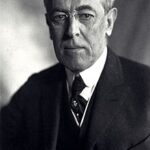The Historic White House Screening
President Woodrow Wilson made history on February 18, 1915, by hosting the first movie screening at the White House. 🎬 The film chosen was D.W. Griffith’s “The Birth of a Nation,” a three-hour epic that portrayed the Ku Klux Klan as heroic defenders. Wilson Birth of a Nation screening represented an unprecedented presidential endorsement of controversial cinema. The president invited his cabinet members and their families to view the film in the East Room.
The Film’s Racist Content
“The Birth of a Nation” depicted African Americans as dangerous threats to white society. The movie showed Black legislators as corrupt and incompetent during Reconstruction. ⚠️ Griffith’s film portrayed the KKK as noble saviors restoring order to the South. Wilson reportedly praised the movie as “like writing history with lightning.” This alleged quote became synonymous with presidential approval of white supremacist propaganda.
Wilson’s Personal Connection
Wilson had personal ties to the film’s historical narrative and its creators. His academic writings on Reconstruction aligned with the movie’s perspective on Southern history. 📚 The president had previously written about the period in his scholarly works. Griffith used Wilson’s historical writings as source material for the film’s intertitles.
Impact:
Revival of the Ku Klux Klan
The White House screening provided unprecedented legitimacy to the KKK’s resurgence across America. 🔥 Membership in the Klan exploded from thousands to millions within a decade. The Wilson Birth of a Nation endorsement helped normalize white supremacist ideology nationwide. Local KKK chapters used the presidential screening as a recruiting tool. Violence against African Americans increased significantly following the film’s widespread distribution.
National Racial Tensions
The screening intensified racial divisions during a critical period in American history. Protests erupted in major cities as civil rights organizations condemned the film. The NAACP launched its first major national campaign opposing the movie’s distribution. ⚠️ Race riots became more frequent in Northern and Southern cities alike. Wilson’s apparent endorsement emboldened white supremacists across the country.
Long-term Constitutional Consequences
The controversy sparked early debates about presidential responsibility and media influence. Wilson’s decision demonstrated how executive endorsement could amplify dangerous propaganda. 📉 The screening damaged America’s reputation internationally during World War I. Foreign observers questioned American commitment to democratic values and human rights. The incident established precedents for presidential media responsibility that continue today.
